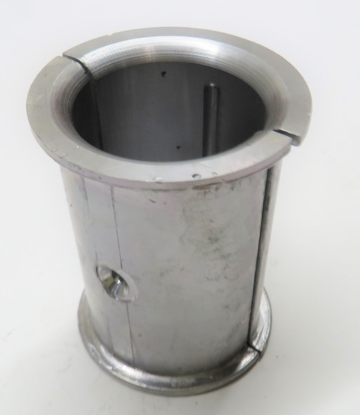When it comes to keeping old engines running, reliability is everything. Antique machines have their own charm, but they also need extra care to perform well. Each part plays a crucial role in making sure the engine starts smoothly and keeps going without trouble. From the smallest nut to the most visible wheel, the performance of every piece matters. Many collectors and restorers know the joy of hearing an old engine fire up again after years of silence. That moment comes from careful maintenance and using the right parts that match the original design.
Why Spark Plug Wire Connectors Matter
One small yet vital part of any engine setup is the spark plug wire connectors. They might seem minor, but they are essential in transmitting the spark that brings the engine to life. A weak connection can lead to misfires, reduced efficiency, or even prevent the engine from starting. For antique engines, this is even more important because replacements must not only function but also fit the original setup. Using the correct connectors keeps the ignition strong and reliable, ensuring smoother operation every time the engine is put to use or displayed at shows.
The Legacy of the Hercules Hit-Miss Engine
Among the many vintage engines still admired today, the hercules hit miss engine holds a special place. Built with solid craftsmanship, these engines were once the backbone of farms and workshops. They operated on a unique firing system that gave them a rhythmic sound, making them unforgettable for those who grew up around them. Today, collectors and hobbyists value these engines not just for their function but for the nostalgia they carry. Restoring a Hercules engine requires patience and the right components, but the result is a piece of history that can still run with pride.
Challenges in Restoring Vintage Engines
Restoring old engines is not always simple. Many of these machines were built decades ago, and original parts are often hard to find. Replacing broken or worn pieces requires either hunting down rare items or finding reliable reproductions. This is where attention to detail matters most. A mismatched part can affect performance or reduce the authenticity of the engine. Restorers often spend hours searching for the exact parts they need, and when they find them, it feels like uncovering hidden treasure. The dedication behind each restoration makes the final result more meaningful.
Modern Support for Old Machines
Thankfully, modern suppliers make it easier for enthusiasts to find what they need. Whether it's connectors, gaskets, or flywheels, there are businesses dedicated to keeping antique engines alive. These suppliers combine modern manufacturing methods with classic designs to produce reliable replacements. This support has kept countless engines running longer than anyone might have expected. Hobbyists no longer need to worry about whether a broken part means the end of their engine. Instead, they can focus on the satisfaction of restoring and maintaining a piece of mechanical history for future generations.
The Value of Preserving Mechanical Heritage
Old engines are more than just machines. They represent an era when craftsmanship, durability, and simplicity guided design. By keeping them alive, collectors preserve a living record of how things were built in the past. Each restored engine tells a story of innovation and resilience. Younger generations who see and hear these engines at shows or museums get a glimpse into the hard work and ingenuity that powered earlier times. Without dedicated restorers and the parts that make their work possible, this heritage could easily fade away.
Bringing It All Together for Enthusiasts
For anyone passionate about antique engines, finding the right balance between originality and functionality is key. Every spark, every sound, and every rotation of the flywheel connects the past with the present. With careful care and the right supplies, even engines that have been sitting idle for decades can return to life. This process is not only rewarding but also deeply meaningful for those who value history. Keeping these machines, running is less about utility and more about keeping a legacy alive in a tangible, powerful way.
Conclusion
Antique engines like the Hercules are reminders of a time when machinery was built to last and serve with strength. Restoring and maintaining them requires patience, skill, and access to the right parts, such as spark plug wire connectors. Every small detail contributes to the joy of hearing a long-silent engine run again. Collectors, hobbyists, and mechanics all play a role in keeping this legacy alive. With dedicated suppliers like Flywheel-Supply.com, the future of these old machines looks brighter. By supporting restoration efforts, we ensure that the history of hardworking engines continues to be heard, seen, and celebrated for years to come.






